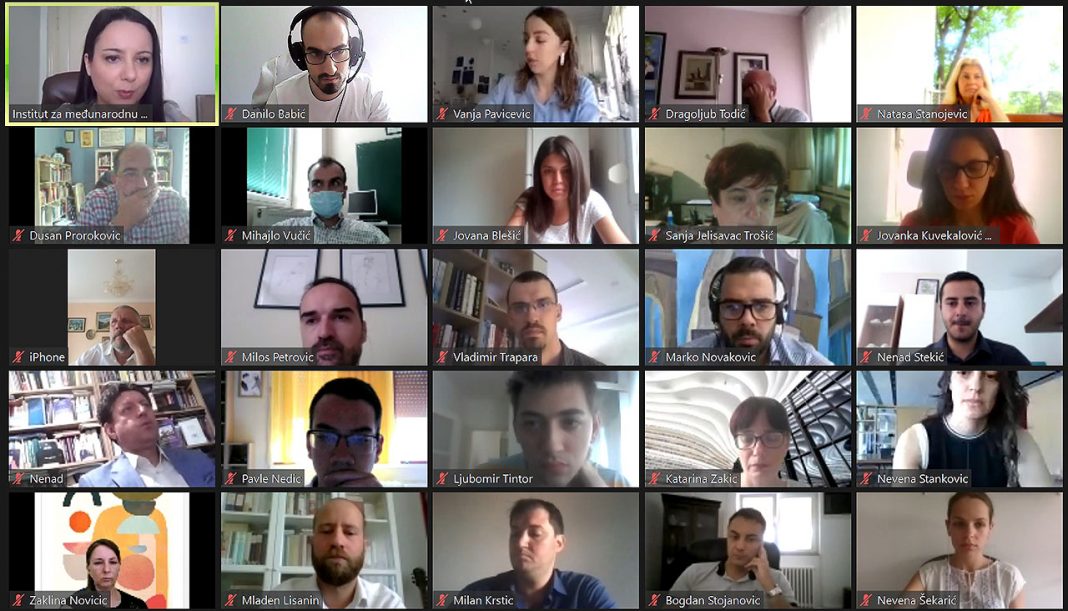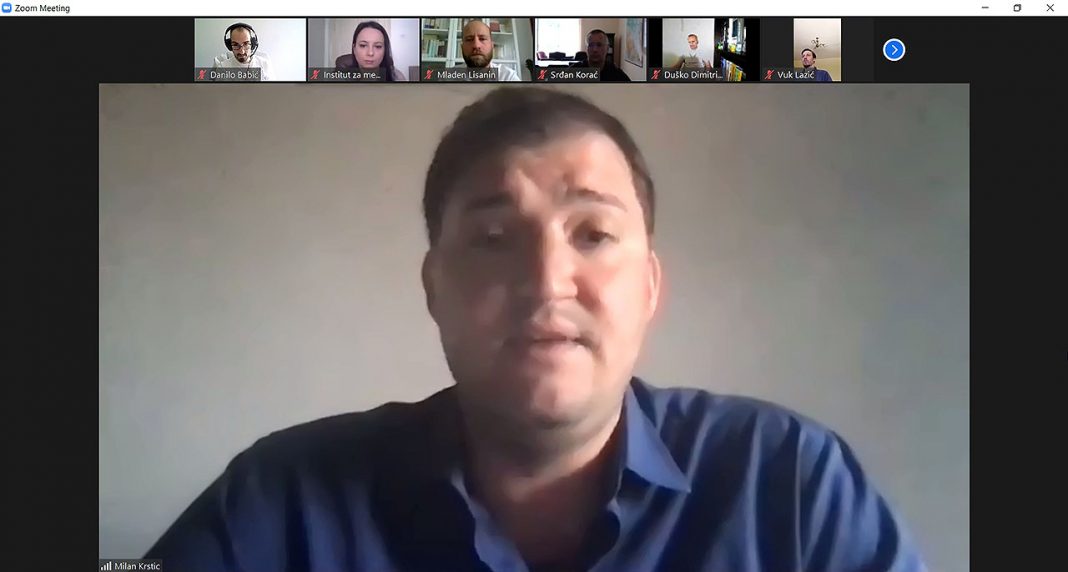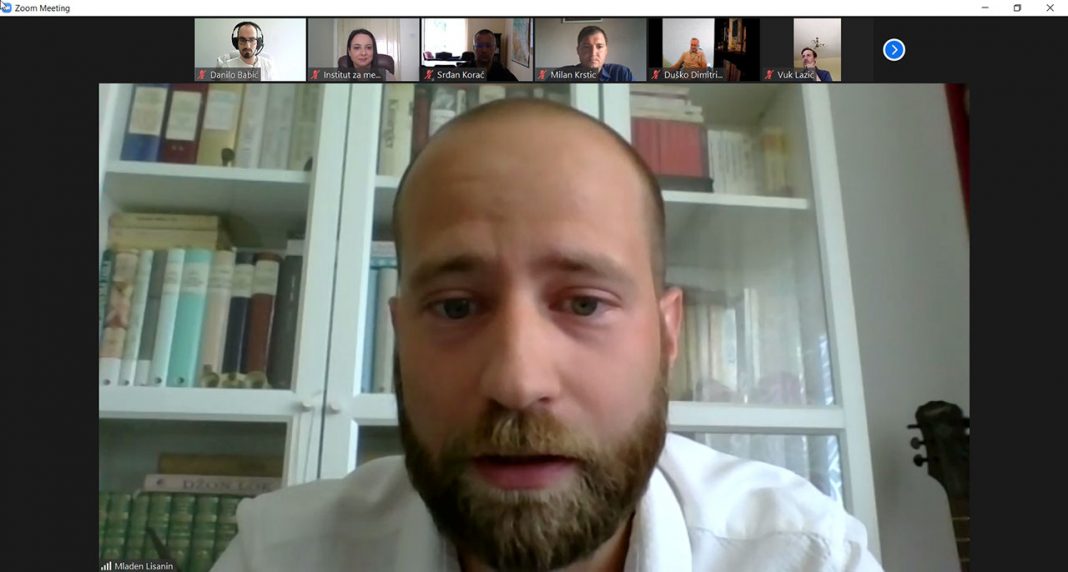IIPE held an online panel discussion on the Biden’s visit to Europe and the state and perspectives of Russian-American relations. The meeting was addressed by Dr Milan Krstić, Assistant Professor at the Faculty of Political Science at the University of Belgrade, MSc Mladen Lišanin, researcher at the Institute of Political Studies, as well as Dr Vladimir Trapara and Dr Marina Kostić – both IIPE research fellows. Dr Krstić analysed the perception of Russia in the US domestic politics and the consequences that the Biden-Putin summit has on the political scene in the United States underlining several important Biden`s messages sent to US public opinion, “hawks” in the Democratic Party and moderate voters, as well as how Biden demonstrated his leader abilities, often challenged by his critics in the United States and abroad. In his presentation, Mladen Lišanin provided an overview of the key moments of US President Biden’s European tour – a summit with British PM Boris Johnson, the G7 summit, the US-EU summit, the NATO summit and the US-Russia bilateral summit, and emphasised that American allies still do not have a clear agenda and agreement on how to deal with the Chinese rise. Dr Vladimir Trapara tackled geopolitical issues which burden the US–Russia relations – primarily the issues of Ukraine, Belarus and Nord Stream 2 – and pointed out the that the summit showed Biden’s recognition of Russia’s great power status and establishing a harmonisation framework for the management of antagonisms, which he assessed as a positive shift toward predictability in the relations between the two powers. Dr Marina Kostić analysed the US–Russia Joint Statement on Strategic Stability and stressed the three formulations contained in the Statement, which represent a guidelines for the formulation of future arms control – nuclear arms control, the continuation of the bilateral form nuclear arms control, and that the negotiations themselves will be comprehensive or integrated. The introductory part of the panel discussion was followed by a fruitful debate about the relations between the US and Russia with China, the possible re-participation of Russia in the G7 and the future of arms control.
© Copyright 1996-2025. IIPE. All rights reserved






